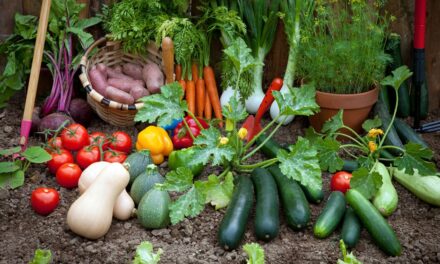The Canadian food industry is at a crossroads. Consumer demands are evolving, driven by concerns for sustainability, health, and convenience. Technological advancements are creating new possibilities for food production, processing, and distribution. In this dynamic landscape, innovation and adaptation are key to navigating the future of food in Canada.
Sustainability at the Forefront:
Consumers are increasingly concerned about the environmental and social impact of their food choices. This is driving a growing demand for sustainable practices across the food chain, from farm to fork. Here are some key trends in sustainable food:
- Local and regional food systems: Consumers are seeking out locally sourced ingredients, supporting local farmers and reducing the environmental impact of transportation. Farmers’ markets, community-supported agriculture (CSA) initiatives, and partnerships between restaurants and local producers are flourishing.
- Regenerative agriculture: This approach focuses on improving soil health, biodiversity, and water conservation, leading to more sustainable and resilient food production systems.
- Reducing food waste: From farm to consumer, food waste is a major concern. Technological advancements are helping to track and manage waste, while initiatives like gleaning programs and “ugly” produce initiatives are minimizing food loss.
Technology Drives Innovation:
Technology is transforming the food industry in several ways:
- Precision agriculture: Using data analytics and sensors, farmers can optimize their practices for improved yield, resource management, and pest control.
- Vertical farming: This method utilizes controlled environments to grow crops indoors, offering solutions for urban areas and challenging climates.
- Food robotics: Robots are assisting with tasks like harvesting, packaging, and food preparation, improving efficiency and safety.
- Alternative proteins: As concerns about the environmental impact of animal agriculture rise, plant-based and lab-grown meat alternatives are gaining traction.
Changing Consumer Preferences:
Consumers are making more informed choices about their food, driven by health and wellness concerns, convenience, and ethical considerations:
- Personalized nutrition: Consumers are increasingly interested in understanding their unique dietary needs and seeking personalized food solutions.
- Plant-based eating: Vegetarian and vegan diets, driven by health and environmental concerns, are becoming more popular.
- Convenience and delivery: Consumers are demanding convenient and time-saving food options, leading to the growth of meal kit delivery services, online grocery shopping, and ready-to-eat meals.
Navigating the Future:
These trends present both challenges and opportunities for the Canadian food industry. Embracing innovation and adapting to changing consumer preferences are crucial for success. Here are some key considerations:
- Collaboration: Collaboration between farmers, food processors, retailers, and researchers will be essential to drive sustainable and innovative solutions.
- Investment: Investment in research and development, infrastructure, and education is necessary to support the transition to a more sustainable and innovative food system.
- Consumer education: Empowering consumers with information about sustainable food choices and the impact of their purchases is key to driving positive change.
The future of food in Canada is full of potential. By embracing innovation, sustainability, and collaboration, the Canadian food industry can ensure a secure, healthy, and delicious future for generations to come.










